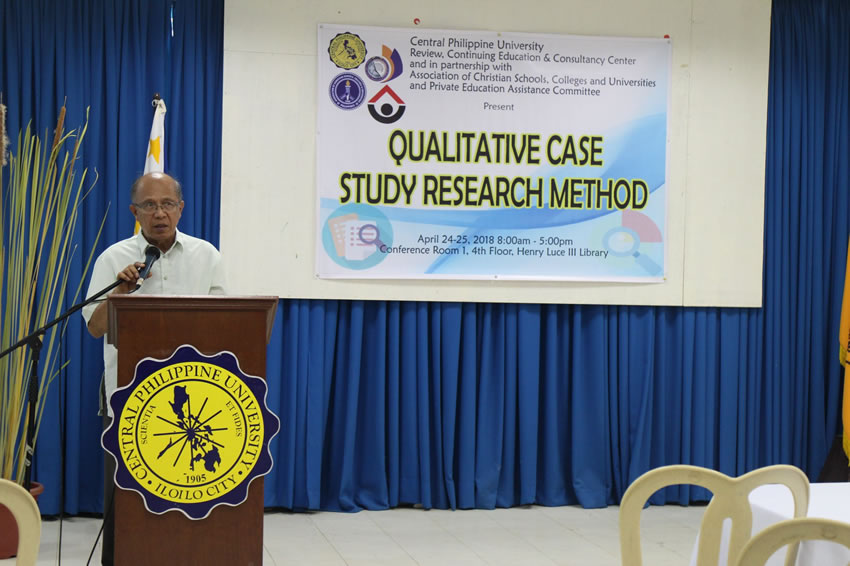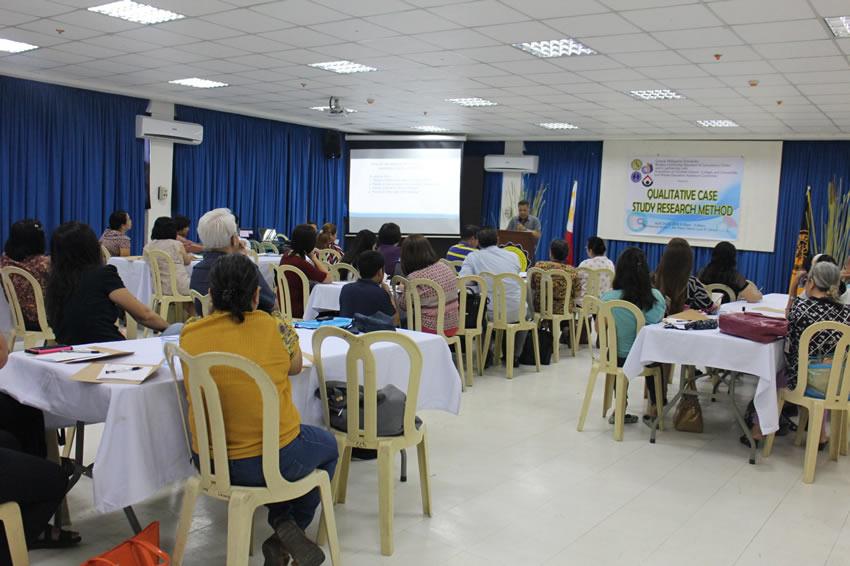CPU RCECC, ACSCU and PEAC hold seminar-workshop on Qualitative Case Study Research Method
CPU President, Dr. Teodoro C. Robles highlights the importance of research in the academe.
With the aim of encouraging quality research output, the Central Philippine University Review, Continuing Education and Consultancy Center (RCECC) in partnership with the Association of Christian Schools, Colleges and Universities (ACSCU) and Private Education Assistance Committee (REAC) held a seminar-workshop on Qualitative Case Study Research Method at the 4th Floor Henry Luce III Library on April 24-25, 2018.
For the opening remarks, CPU President, Dr. Teodoro C. Robles highlighted the importance of research in bringing the university to greater heights.
The seminar-workshop featured Dr. Leonardo R. Estacio Jr. as resource person. Dr. Estacio is an anthropologist and a social development and public health expert. He is the Dean of the College of Arts and Sciences, University of the Philippines-Manila. He completed his doctorate in Anthropology and master’s degree in Community Development at UP-Diliman and another in Public Health at Johns Hopkins University in Baltimore. He did his post-doctoral research on Drug Abuse at the University of Washington in Seattle.
Dr. Estacio began the lecture with a discussion on Research, its meaning, purpose, types. He also talked about research as a way of life, and the ways of knowing, seeing and doing research. For the second lecture-discussion, Dr. Estacio talked about the research process. It was then followed by the third lecture-discussion which tackled the case study as a qualitative research design, its foundational concepts, common characteristics, objectives, types, steps in the process, and misconceptions. The fourth lecture-discussion focused on writing the discussion and addressing the significance of the study, identifying a research problem, objectives, and research questions in case study research. While the fifth lecture-discussion tackled about writing the review of related literature and the use of theory and literature review in case study research.
Participants eagerly listen to Dr. Estacio as he delivers his lecture.
For the first workshop, participants were made to identify a research problem and to write about its problem, objectives and research questions. In the second workshop, the participants wrote the literature review section and formulated the theoretical and conceptual framework.
During the second day, Dr. Estacio continued with the fifth lecture-discussion. He lectured about data collection, data analysis and instrumentation techniques. It was then followed by the third workshop where the participants wrote the methodology section which includes the research design, data collection, data analysis, and instrumentation techniques.
The sixth lecture-discussion tackled the topic’s ethical consideration. Participants were then made to write the informed consent, followed by the continuation of the workshop sessions, plenary reporting, critiquing sessions, and post evaluation.


